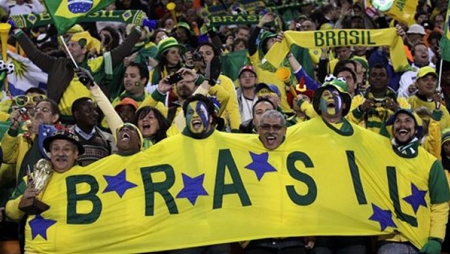Rio De Janeiro, Jun 6: With a week to go before the World Cup kicks off, Brazilian authorities are bracing for waves of public protests over the cost of staging the event.

Caught out by the scale of demonstrations which accompanied last year's Confederations Cup dress rehearsal event, authorities have made detailed plans to counter anything from street protests to full-blown terrorist attacks.
"We have defined 15 areas of intervention over the past year and a half and have drawn up protocols on how to respond in each case, based on repeated testing.
"We are ready," government state secretary for major events Andrei Rodrigues said. "When it comes to security one can never let one's guard down."
Around 157,000 troops and police will be deployed across the 12 host venues for the Cup, running from June 12-July 13. Some 20,000 private security agents will also be on hand in the stadiums -- some 1,800 per venue in an USD 860 million operation.
In addition, 120 police officers from 40 countries will collaborate with the Brazilian authorities as they jointly collate and assess intelligence.
Militant groups have called a series of demonstrations during the World Cup as they look to reignite the kind of social protests which drew more than a million people into the streets 12 months ago. Those large-scale protests saw loud calls for more investment in public services, an end to rampant political corruption and for World Cup costs to be reined in.
This year, "we have the feeling that they (the protests) will be on a smaller scale," says Justice Minister Jose Eduardo Cardozo.
Military police, responsible for maintaining public order, have been preparing for the demonstrations. They have received training along the way from the US Federal Bureau of Investigation and French riot police.
The military police units have been kitted out with hi-tech uniforms making their members look like something out of "Robocop". In Rio, meanwhile, mounted police units have been stocking up on horseshoes.
President Dilma Rousseff promised in April that nobody would be allowed to get near the 32 World Cup teams.
But last week, striking teachers got near enough to the Brazilian team bus to plaster the vehicle with protest stickers and also briefly blocked their exit from the airport at Rio.





Comments
Add new comment